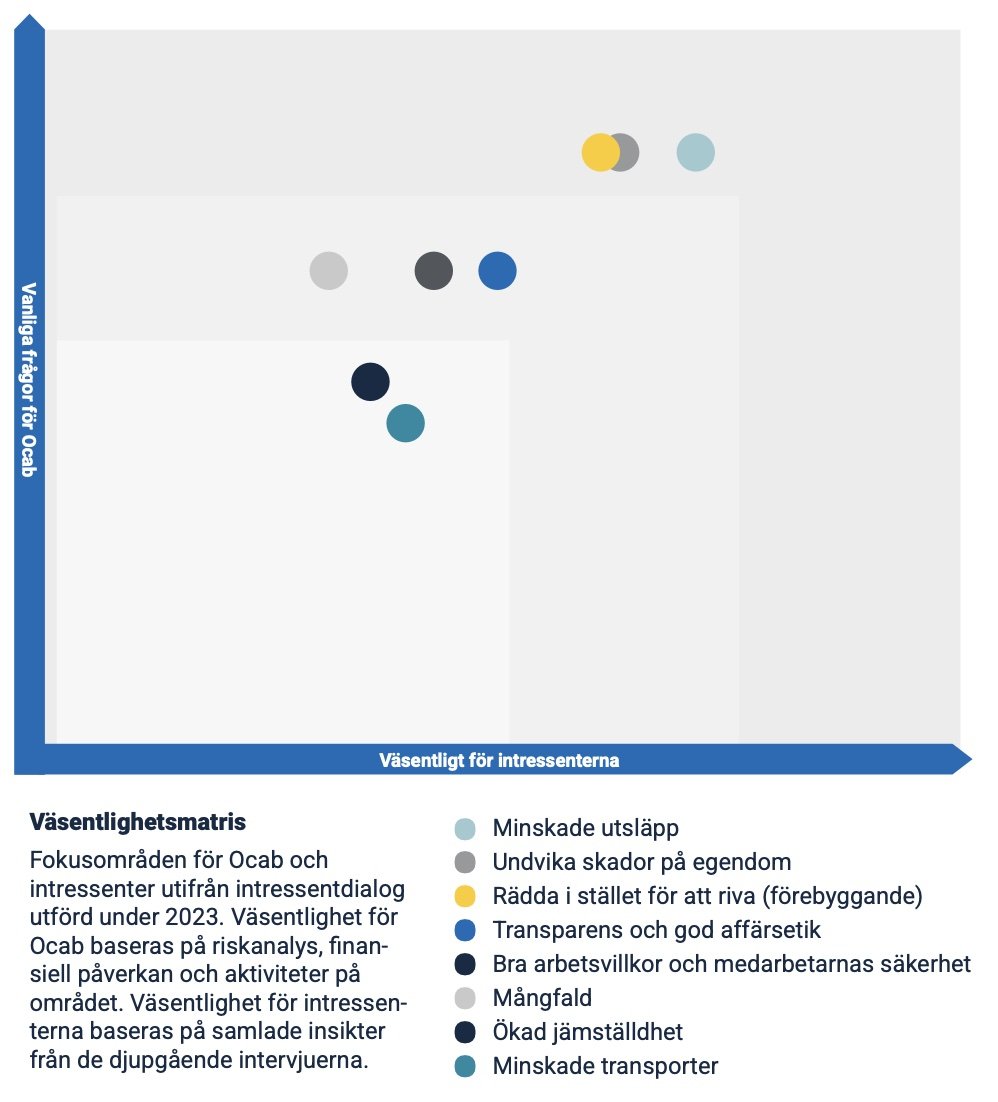
An open dialogue with our stakeholders
We see open dialogue with our stakeholders as a prerequisite for sustainable development. Our goal is to move the industry forward together and create a more circular economy in which we conserve resources and reduce emissions.
In 2023, in addition to continuous contact, dialogue consisted of in-depth interviews involving discussion of Ocab's impact on and by stakeholders, in addition to available development opportunities.
The interviews have focused on identifying requirements and wishes from stakeholders and shifting the focus from price to sustainability in the business.
For Ocab, it is important to identify what is business critical for stakeholders and which sustainability parameters are of greatest importance to them.
“ We see a great opportunity for Ocab to position itself and take on the green leadership role.”
Dialogue with our stakeholders
In our value chain, we have identified our most important stakeholders.
-
Investors
Dialogue is via shareholder representatives on the Board of Directors and annual general meetings
-
Employees
Regular employee surveys and performance reviews to evaluate our operations.
-
Customers
Dialogue with customers takes place through customer meetings, trade fairs and customer service.
-
Suppliers
Dialogue with our suppliers takes place via supplier surveys, development projects, follow-up, project meetings, training and contract discussions.
-
Trade associations and public authorities
Dialogue with trade associations and public authorities through continuous dialogue and meetings, cooperation and development forums and trade union negotiations.
Active dialogues
“Our focus is to demolish less and dry more. Ocab is very good at drying, saving resources and avoiding demolition, which we think is positive.”
- Patrik Bernwall, IF
“Given that Ocab has the proper expertise and resources, I believe they can help us produce data on the benefits of preventive maintenance.”
- Dick Larsen, purchasing manager at Fabege
Materiality analysis
The process for determining our material topics involved identifying the actual and potential negative and positive impacts that Ocab has on the environment, people, the economy and human rights. The impacts were then assessed and prioritised.

Read more about our strategy




